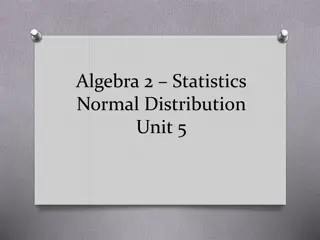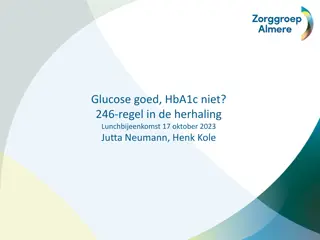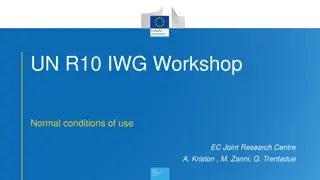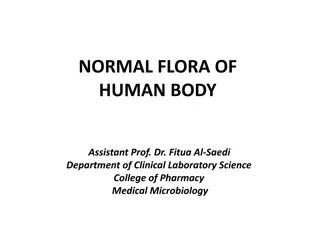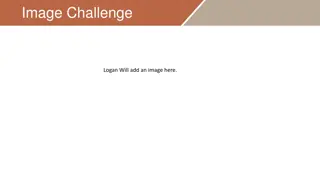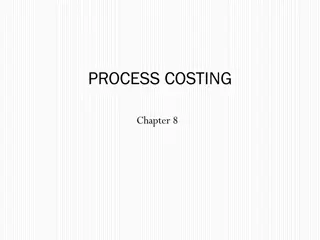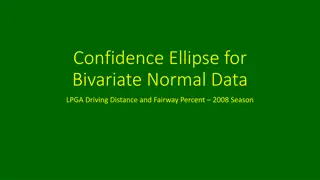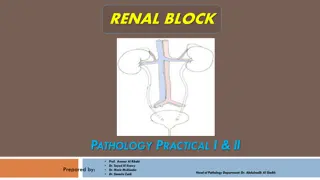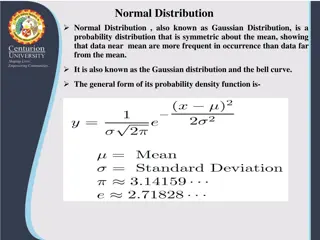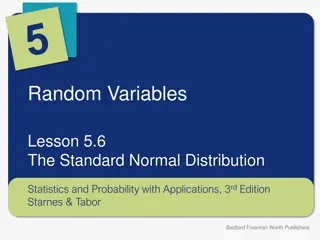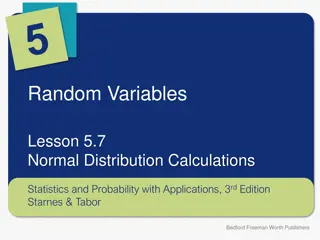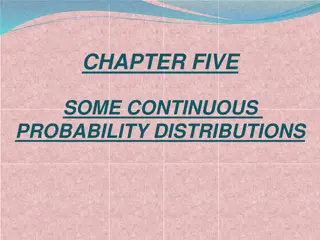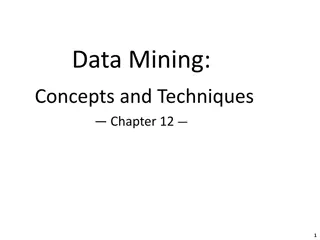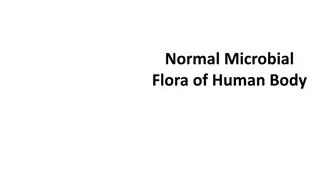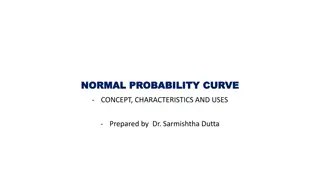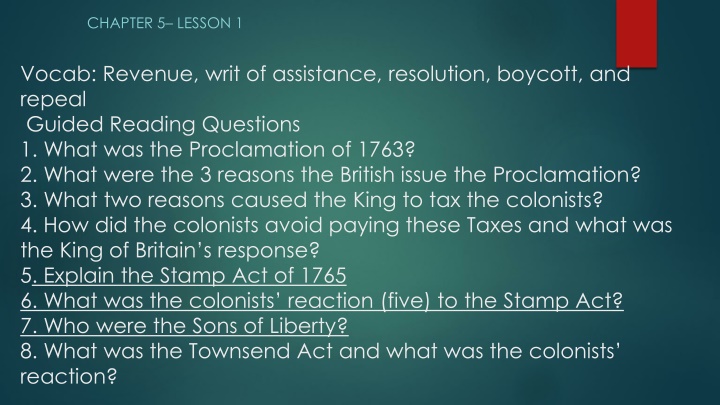
Colonial Resistance to British Taxes in the 18th Century
Explore the history of colonial resistance in the 18th century, focusing on key events like the Proclamation of 1763, Stamp Act, Townsend Acts, and reactions of the colonists. Understand the reasons behind the protests, boycotts, and emergence of groups like the Sons of Liberty.
Download Presentation

Please find below an Image/Link to download the presentation.
The content on the website is provided AS IS for your information and personal use only. It may not be sold, licensed, or shared on other websites without obtaining consent from the author. If you encounter any issues during the download, it is possible that the publisher has removed the file from their server.
You are allowed to download the files provided on this website for personal or commercial use, subject to the condition that they are used lawfully. All files are the property of their respective owners.
The content on the website is provided AS IS for your information and personal use only. It may not be sold, licensed, or shared on other websites without obtaining consent from the author.
E N D
Presentation Transcript
CHAPTER 5 LESSON 1 Vocab: Revenue, writ of assistance, resolution, boycott, and repeal Guided Reading Questions 1. What was the Proclamation of 1763? 2. What were the 3 reasons the British issue the Proclamation? 3. What two reasons caused the King to tax the colonists? 4. How did the colonists avoid paying these Taxes and what was the King of Britain s response? 5. Explain the Stamp Act of 1765 6. What was the colonists reaction (five) to the Stamp Act? 7. Who were the Sons of Liberty? 8. What was the Townsend Act and what was the colonists reaction?
CHAPTER 5 LESSON 1 Vocab: revenue incoming money from taxes or other sources writ of Assistance court document allowing customs officers to enter any location to search for smuggled goods resolution an expression of opinion by a group boycott to refuse to buy items in order to show disapproval or force acceptance of one s terms repeal cancel an act or law
CHAPTER 5 LESSON 1 Guided Reading Questions 1. The Proclamation of 1763 prohibited colonists from living west of the Appalachian mountains. 2. Three reasons it maintained peace with the Native Americans, it kept the colonists near the Atlantic Coast where the British were stronger and it allowed Britain to control westward expansion. 3. To pay for troops needed in the colonies and to pay for the French and Indian War. 4. The colonists started to smuggle taxable goods and the King issued a writ of assistance.
CHAPTER 5 LESSON 1 5. It taxed all printed material even playing cards. 6. The colonists had the following reaction: - it outraged the colonists - they argued only their assemblies could tax them (colonists) - They passed a resolution (official opinion) declaring they had sole right and power to tax - They hung effigies (stuffed figures) in protest to the unpopular tax - They boycotted British goods in protest 7. The Sons of liberty were a group of Patriots that protested British taxes
CHAPTER 5 LESSON 1 8. The Townsend Acts taxed imported goods glass, tea and paper. The tax was before it entered the colonies. The King thought the taxes that were in the colonies is what angered the colonists but it was any tax. The colonists reaction was to protest and boycott. Some women called themselves the Daughters of Liberty.
CHAPTER 5 LESSON 2 Vocab: rebellion propaganda Guided Reading Questions: 1. Explain the Boston Massacre. Hint Read and summarize Tension in the Streets 2. Explain the colonist reaction to the Boston Massacre. 3. What was the British response to the colonists reaction to the Boston Massacre? 4. Explain the committees of correspondence. 5. Why was the Tea Act passed by Parliament? 6. Explain the Tea Act.
CHAPTER 5 LESSON 2 7. What was the colonists reaction to the Tea Act? 8. Explain the Boston Tea Party. 9. Explain the Coercive Acts and the reason why the Parliament passed the Act. 10. What did the colonists call these acts? 11. What was the colonists reaction to the Coercive Acts and specifically to Massachusetts? 12. What was the Quebec Act and how was it viewed by the colonists?
CHAPTER 5 LESSON 2 Rebellion open defiance of authority propaganda ideas or information intentionally spread to help or harm a cause 1. March 5, 1700 violence erupted in Boston. Colonists started by throwing sticks and stones and calling the soldiers names. One soldier got knocked down and this caused the redcoats to fire killing five colonists. One of the dead colonists was Crispus Attucks part African and part Native American. This encounter was labeled by the colonists as the Boston Massacre.
CHAPTER 5 LESSON 2 2. The colonists specifically Paul Revere and Samuel Adams used propaganda Adams put up posters of British soldiers slaughtering innocent colonists and Paul Revere made an engraving showing a British officer ordering the soldiers to fire into an orderly crowd. The colonists increased the boycott of British goods. 3. The British responded by removing all taxes except the one on tea. Trade resumed with colonists only boycotting tea.
CHAPTER 5 LESSON 2 4. In 1772, Samuel Adams revived the committees of correspondence. A group that called for action against the British. 5. The British East India Company was vital to the British economy. When the colonists boycotted tea it nearly drove the British East India Company out of business. To save the company they passed the Tea Act. 6. The Tea Act gave the British almost complete control over the tea market.
CHAPTER 5 LESSON 2 7. The colonists again boycotted the Act and also prevented the British ships from unloading tea in New York and Philadelphia. 8. Boston received three ships with tea and the governor ordered the tea unloaded. The Sons of Liberty dressed as native Americans boarded the ships and threw 342 chests of tea overboard. The colonists protested, boycotted and even destroyed goods sent to the colonies but they never spoke out against British rule they still felt they were loyal British citizens.
CHAPTER 5 LESSON 2 9. Coercive Acts were: 1- applied to all colonies and forced colonists to house British soldiers. 2- Banned town meetings in Boston. 3-closed Boston Harbor until they paid for the ruined tea. 4- stopped most shipments of food and supplies to Boston. They were trying to separate Boston from the rest of the colonies. 10. The colonists called the Coercive Acts the Intolerable Acts.
CHAPTER 5 LESSON 2 11. Colonists drew closer because of the Coercive Acts and even sent food and supplies to Boston. 12. The Quebec Act was a law that created a government in Canada and extended into the Ohio Valley. The colonists felt they owned this land and believed this law violated their rights as a British citizen.
CHAPTER 5 LESSON 3 1. What was the Continental Congress? 2. What did Patrick Henry say at the meeting and why was it important? (the important part is not in the book) 3. The delegates voted to do what? 4. What were the Suffolk Resolves? 5. Explain the duties of someone in the militia. 6. Define minuteman. 7. Why did the British march on Lexington and Concord? 8. Summarize the night of April, 1775? 9. What were the results of the British march on Lexington and Concord?
CHAPTER 5 LESSON 3 10. Provide the details of the Battle for Fort Ticonderoga. You must have why the fort was attacked; who was Benedict Arnold, Ethan Allen and the results of the battle. 11. What happened at the Battle of Breed s Hill (Bunker Hill? 12. Define Loyalist and their position on taxes and laws. 13. Define Patriots and their position on taxes and laws.
CHAPTER 5 LESSON 3 1. What was the Continental Congress? 55 delegates that represented 12 of the 13 colonies (Georgia did not attend) met as an Americas to challenge British control. 2. What did Patrick Henry say at the meeting and why was it important? (the important part is not in the book He stated: The distinctions between Virginians, Pennsylvanians and New Englanders are no more. I am not Virginian but American. It changed the way they viewed themselves from British citizens to Americans.
CHAPTER 5 LESSON 3 3. The delegates voted to do what? They voted to call for the repeal of 13 acts of Parliament they felt were against the laws of nature, principles of the English constitution, and several charters. They also voted to boycott British trade and endorse the Suffolk Resolves. 4. What were the Suffolk Resolves? Declared the Coercive Acts to be illegal Called for residents to arm themselves Called for colonies to start organize groups of soldiers
CHAPTER 5 LESSON 3 5. They were part of the town s defenses. The trained by practicing with muskets and cannons. They had to have their own weapon. 6. A minuteman was a person in the militia who was ready to fight at a minute s notice 7. Why did the British march on Lexington and Concord? Gen. Gage found out the colonists were storing arms and ammunition in the town of Concord.
CHAPTER 5 LESSON 3 8. Summarize the night of April, 1775? Dr. Joseph Warren saw British troops marching out of the city. He told Paul Revere and William Dawes who rode to Lexington to spread word the British were coming. They were captured by the British but Samuel Prescott another rider carried the warning to Concord.
CHAPTER 5 LESSON 3 9. What were the results of the British march on Lexington and Concord? Badly outnumbered in the Lexington town common the colonists lost 8 minutemen. The British continued Concord and at a bridge the British took heavy losses from minutemen. They retreated back to Boston but were shot at from minutemen hiding behind trees and bushes. Total British losses were 174 wounded and 73 dead.
CHAPTER 5 LESSON 3 10. Provide the details of the Battle for Fort Ticonderoga. You must have why the fort was attacked; who was Benedict Arnold, Ethan Allen and the results of the battle. The fort was strategically located by Lake Champlain. Benedict Arnold- Captain who led a force of 400 Connecticut militia Ethan Allen leader of the Green Mountain Boys who joined forces with Arnold The British surrendered the fort to the Americans on May 10, 1775.
CHAPTER 5 LESSON 3 11. What happened at the Battle of Breed s Hill (Bunker Hill)? British numbered 20,000 soldiers and controlled Boston. Patriots under Colonel Prescott took up positions on Breed s Hill across the harbor from Boston. The British marched on Breed s Hill, and the Americans fired but not until they saw the Whites of their eyes . The Americans ran out of gunpowder and retreated. The British won the battle but suffered over 1,000 dead and wounded.
CHAPTER 5 LESSON 3 12. Define Loyalist and their position on taxes and laws. They sided with British and thought unfair taxes and laws did not justify rebellion. 13. Define Patriots and their position on taxes and laws. They favored independence therefore favored war because they felt they had a right to govern themselves. NOTE: This was not just a war between America and Britain but a civil war between Loyalists and Patriots.
CHAPTER 5 - ESSAY Please read pages 132 and 133. Using information from lessons 1-3 write a persuasive essay. Your essay must have the following: 1) A clear position loyalist or patriot 25 points 2) At least three pieces of evidence 25 points 3) 5 paragraphs a paragraph is five sentences a sentence is 5- 7 words 25 points 4) No grammar or spelling mistakes 25 points (5 points off for one mistake;
CHAPTER 5 LESSON 4 Vocab: petition; preamble 1. What four accomplishments came out of the Second Continental Congress? 2. Summarize the three battles that took place under the subheading The War Heats Up 3. Thomas Paine wrote what pamphlet, what position did he take in the pamphlet and what was its effect in the colonies? 4. Thomas Jefferson wrote the constitution and used ideas from what English philosopher?
CHAPTER 5 LESSON 4 5. What three ideas did John Locke believe people were born with? 6. The Declaration has four parts identify and explain them. 7. Look at the quote in middle of page 139. What are the three basic truths? 8. According to the Declaration of Independence why does government exist and what is the right of the people?
CHAPTER 5 LESSON 4 Petition a formal request preamble the introduction to a formal document that often tells why the document was written 1. The four accomplishments were: - They authorized printing of money - They set up a post office - They formed committees to handle relations with the Native Americans - They created the Continental Army
CHAPTER 5 - LESSON 4 2. The three battles were: - Americans learned British troops were planning to attack New York, so they struck first from Fort Ticonderoga and captured Montreal. - An attack on Quebec under Benedict Arnold failed - Gen Washington trained some civilians to be soldiers then under the cover of darkness set up cannons and troops to surrounded Boston. The British surprised by this move boarded their ships and withdrew from Boston. 3. Thomas Paine wrote Common Sense which stated America should completely break away from England and it influenced opinions throughout the colonies. The key was the common language he used to ensure common people could understand it.
CHAPTER 5 LESSON 4 4. Thomas Jefferson took the ideas of John Locke. 5. The three ideas were people were born with the natural rights of life, liberty and the pursuit of property. 6. The declaration has four parts first part is the preamble which is an introduction explaining their reasons for declaring their independence. The next two sections list the rights that the colonists believe they should have as well as complaints against Great Britain. The last part is the declaration proclaiming a new nation.
CHAPTER 5 LESSON 4 7. The three truths are: - all men are created equal - Their Creator endowed them with certain unalienable rights - among these rights are life, liberty and the pursuit of happiness 8. The declaration says that government exists to protect these rights and if the government fails it is the right of the people to alter or abolish it and institute a new government


